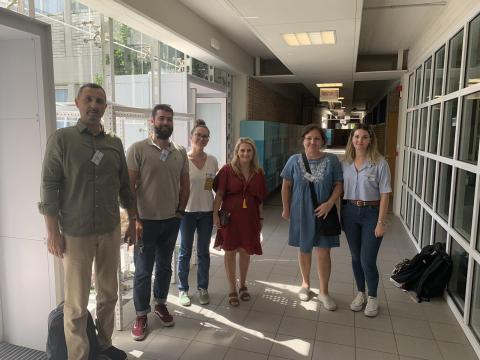Distance Learning in Greece
The Covid-19 pandemic is the biggest challenge that education systems have faced worldwide and is obviously directly related to distance learning. Teachers’ and students’ exposure to digital data driven largely by algorithms created clear risks and required more critical thinking than ever as well as the ability to engage positively and competently in the digital environment. As a result, data privacy has become a key concern in the digital society.
In Greece, the Ministry of Education and Religious Affairs tried to respond to the challenge of school closures by launching digital tools that enabled distance learning. The Webex platform was chosen for the synchronous learning. As far as the data protection is concerned, the Greek government ensured that the use of this platform will protect teachers and students’ private data. According to the signed agreement, any information from a user participating in the Webex service is used, collected and stored in accordance with EU data protection laws and International Cyber Security Standards (ISO 27001, ISO27017, ISO27018, ISO27701 including SOC 2 Type II, SOC 3 and C5) and are certainly not used to profile or share user data with any third party. In general terms, the response of both students and teachers to online e-learning was considered impressive (Table 1) (Statistics on distance learning, Ministry of Education, 2020) as distance teaching was quickly rolled out nationally across all school levels during the second lockdown. However, it is important to note that although teachers used the online tools they had at their disposal in order to continue educating their students, they were not trained with a view to being informed about the protection of personal data. For this reason, teachers and students didn’t feel protected during the online courses.
In line with the above, a survey was conducted by Ellinogermniki Agogi in which twelve teachers who work both to public and private schools were involved. As far as their field of specialization is concerned, as depicted in the graph below, there is enough variety.

Graph 1: School subjects
Specifically, half of the teachers stated that they didn’t receive any training regarding online safety and GDPR laws. In addition, only 3 out of the 12 teachers were informed about the national data protection laws. Morever, more than half of the teachers consulted parents about how their kids’ data are used while they are online. This diversity could be justified by the fact that in private schools teachers where trained trough seminars with view to be able to use the Webex and were also informed for the protection of personal data.

Graph 2: Training on Online Safety and Data protection
Furthermore, another interesting aspect worth referring to is the fact that though half of the teachers didn’t receive any training on data protection, the majority of teachers responded that they tried to protect their students’ personal data. Teachers also responded positively to all questions regarding their training on on-line safety, GDPR and NDP laws.

Graph 3: Distance learning
To conclude, as concerns were raised regarding data privacy issues, the training of the teachers on data protection in Greece is essential.
References:
- https://www.minedu.gov.gr/anastoli-leitourgias-ekpaideftikon-monadon/44445-21-03-2020-odigies-gia-tin-eks-apostaseos-ekpaidefsi
- https://www.oecd.org/education/policy-outlook/country-profile-Greece-2020.pdf
- https://www.sch.gr/services/#pg-14018-7
- https://www.minedu.gov.gr/news/44484-30-03-20-mathainoume-sto-spiti
- https://t4e.sch.gr/
- https://trustportal.cisco.com/c/dam/r/ctp/docs/privacydatasheet/collaboration/cisco-webex-meetings-privacy-data-sheet.pdf



